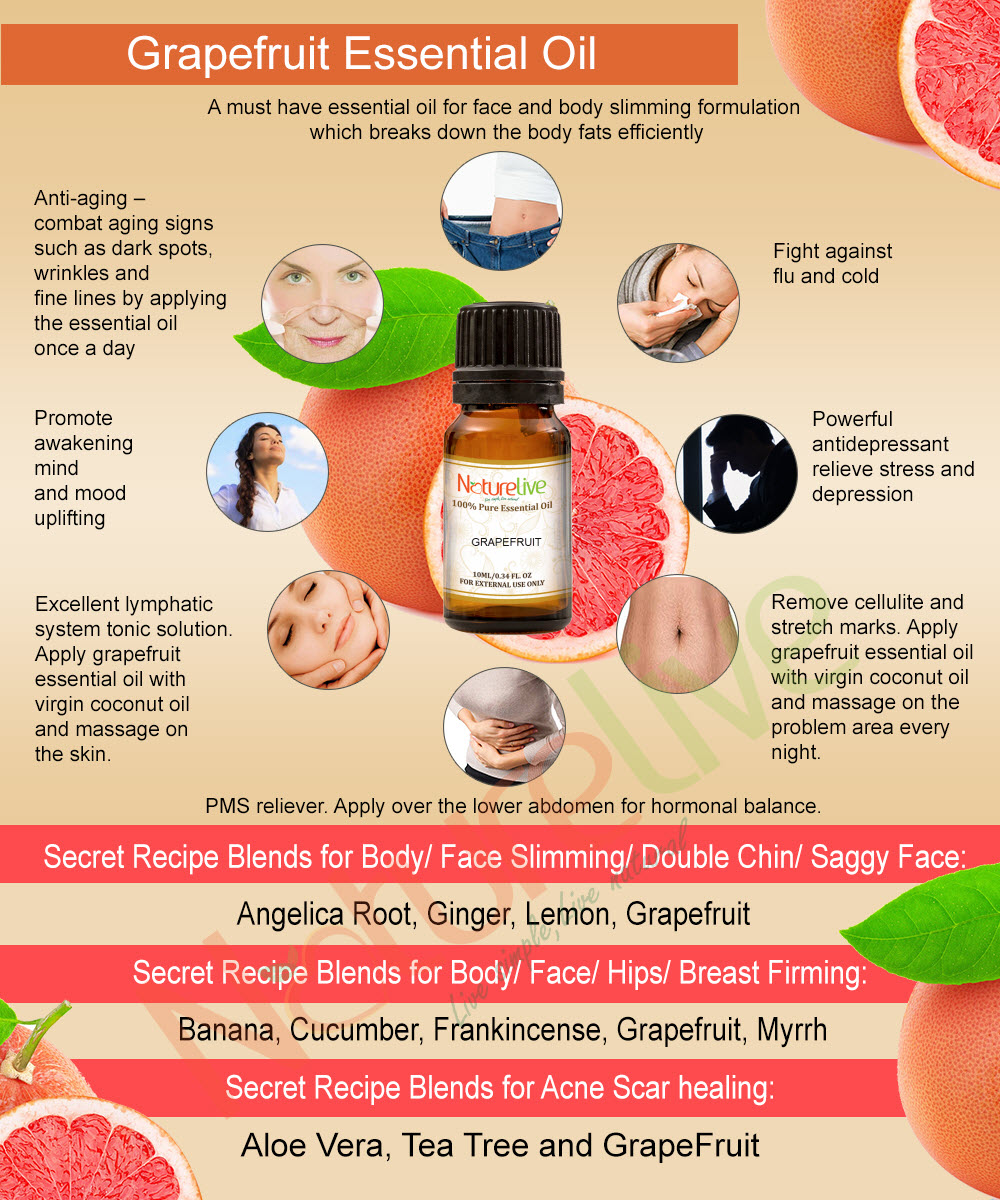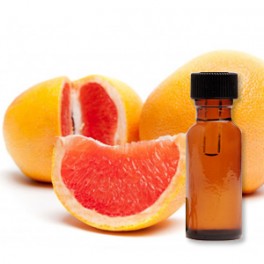
Heart disease remains the leading cause of death in the United States, accounting for nearly one in four deaths ( 18).

What’s more, when given to rats alongside the anticancer drug doxorubicin, limonene helped prevent several common side effects of the medication, including oxidative damage, inflammation, and kidney damage ( 17).Īlthough these results are promising, more human studies are needed. Other rodent studies indicate that limonene may fight other types of cancer, including breast cancer ( 16).
#Health benefits of grapefruit oil skin#
In a population study, those who consumed citrus fruit peel, the major source of dietary limonene, had a reduced risk of developing skin cancer compared to those who only consumed citrus fruits or their juices ( 13).Īnother study in 43 women recently diagnosed with breast cancer experienced a significant 22% reduction in breast tumor cell expression after taking 2 grams of limonene daily for 2–6 weeks ( 14).Īdditionally, research in rodents found that supplementing with limonene inhibited the growth of skin tumors by preventing inflammation and oxidative stress ( 15).
#Health benefits of grapefruit oil free#
One test-tube study revealed that limonene may inhibit free radicals in leukemia cells, suggesting a decrease in inflammation and cellular damage that would normally contribute to disease ( 12).Īlthough promising, these effects need to be confirmed by human studies. Antioxidants help reduce cell damage caused by unstable molecules called free radicals.įree radical accumulation can lead to oxidative stress, which may trigger inflammation and disease ( 11). Limonene has demonstrated antioxidant effects as well. In a study in rats with ulcerative colitis - another disease characterized by inflammation - treatment with limonene significantly decreased inflammation and colon damage, as well as common inflammatory markers ( 10). Nitric oxide is a signaling molecule that plays a key role in inflammatory pathways ( 9).

Limonene has been shown to reduce inflammatory markers that relate to osteoarthritis, a condition characterized by chronic inflammation.Ī test-tube study in human cartilage cells noted that limonene reduced nitric oxide production.

It’s important to prevent or reduce this type of inflammation as much as possible ( 8). While short-term inflammation is your body’s natural response to stress and is beneficial, chronic inflammation can harm your body and is a major cause of illness. Limonene has been shown to reduce inflammation in some studies ( 6, 7). Anti-inflammatory and antioxidant benefits However, most research has been conducted in test tubes or on animals, making it difficult to fully understand the role of limonene in human health and disease prevention. Limonene has been studied for its potential anti-inflammatory, antioxidant, anticancer, and heart-disease-fighting properties. It can also be found in supplement form, as it may boost health and fight certain diseases. Limonene is used in a range of products, including food, cosmetics, and eco-friendly pesticides.

This citrus compound is also used as an aromatic oil for its calming and therapeutic properties. These are often marketed for their supposed health benefits. Other household products containing this compound include soaps, shampoos, lotions, perfumes, laundry detergents, and air fresheners.Īdditionally, limonene is available in concentrated supplements in capsule and liquid form. It’s an active ingredient in multiple pesticide products, such as eco-friendly insect repellents ( 5). Limonene is extracted through hydrodistillation, a process in which fruit peels are soaked in water and heated until the volatile molecules are released via steam, condensed, and separated ( 4).ĭue to its strong aroma, limonene is utilized as a botanical insecticide. For example, it’s used in foods like sodas, desserts, and candies to provide a lemony flavor. Limonene is a popular additive in foods, cosmetics, cleaning products, and natural insect repellants.


 0 kommentar(er)
0 kommentar(er)
